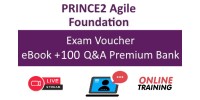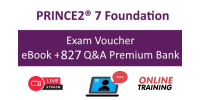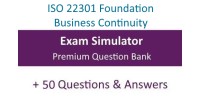In all my years as a programme manager, I’ve never experienced anything as transformative in project and programme management as I have during the Covid-19 pandemic.
The past two years have shifted our traditional and familiar ways of working. But the silver lining of this is realizing the benefits of flexible working, with Agile methods blending very much into more and more workplaces. As well as adapting to new ways of working we’ve also had to expand our skillset. Having a framework and structure in place to lean on during this process has been crucial.
The importance of skilled people in projects and programme
Having skilled and professionally trained people brings a deeper level of understanding to change initiatives. These skills help teams to adapt quickly and efficiently, particularly when the change is unprecedented. Having a framework means you’re more able to prioritize and better equipped to track progress effectively and the benefits delivered. A sound knowledge of tools and templates is also critical for making evidence-based decisions and managing risks efficiently.
Emerging skills in project and programme management
Programme and project managers need a particular skill set and it’s interesting to observe how this has evolved since the start of the pandemic. When I first began my career in project management, it was more task-oriented. Now other “soft” skills, such as communications, have become important. Active listening is a vital skill to have, particularly while many people are working remotely and there’s less body language to pick up on.
We’ve all had to be more aware of, and empathetic to, our teams’ unique working environments and needs. Communication and collaboration are really key to agile working and I think these skills are here to stay. Ultimately, being flexible is fundamental to progress. The pandemic has highlighted how one size doesn’t fit all (which I think we already knew). More and more organizations are moving towards progressive ways of working and I think this is encouraging.
PRINCE2 and MSP – improving project and programme management
Framework and structure help people to understand the end goal – what you are trying to deliver. Ultimately, delivery still remains the main focus of project and programme management. Good communications skills, while important, will not make someone a great project manager, but these skills work in perfect harmony with the skills and knowledge gained from a method like PRINCE2, which is very adaptable and can be customized. Combining these “soft” skills with the structure of PRINCE2 and Managing Successful Programmes (MSP) is a great recipe for an efficient and successful project or programme manager.
Assessing capabilities and choosing the right training
There are two main ways of assessing capabilities. The first involves looking at organizational objectives, assessing whether a person has those skills and aligning these with the appropriate training and learning. The second involves using a skills matrix and 360° assessment internally to match someone with different types of training.
For new project managers, PRINCE2 gives a basic structure and framework and helps develop key skills, such as conflict resolution and decision making. It also supports future leaders with project understanding, terminology and managing specific groups of people. For project managers aspiring to manage projects and programme managers themselves, MSP’s focus on benefits realization is a perennial concept, along with how benefits link back to the business case and the value of stakeholder engagement and communications.
I think using a roadmap approach – like the one offered with Axelos ProPath – is a great way of planning where you want your career to be and how to invest in your own development. You can add training and certifications to the skills and experience gained on the job.
The past two years have given us all a unique opportunity to reflect on our career paths and evaluate our learning and development in a new light. Using these reflections, we can now decide what it is we really need to take our careers forward.
Source: https://www.axelos.com/resource-hub | Author Erandi Stretton – Programme Manager, Department for Levelling Up, Housing and Communities








